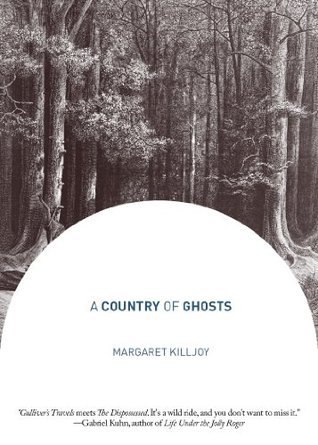Book Notes: A Country of Ghosts
A Country of Ghosts
by Margaret Killjoy
Read
Oct 22, 2020 -
Oct 27, 2020
⭐⭐⭐⭐
This was a surprisingly wholesome and bright read. A Country of Ghosts put a smile on my face, soothed my nerves, and gave me a small injection of hope.
The story is a fairly unoriginal one: the protagonist discovers that “his side” are the bad guys, joins the other side in the fight, learns new and better ways to live, hijinks ensue. But the plot is mainly an excuse for showcasing an eco-anarchist utopia, in a way that Killjoy manages to make lovely and endearing, and not preachy or naive. Although there is a fair amount of idealism, there are also nods to the complexities of such a society, and the acknowledgement that even in such a utopia humans will continue having the usual human problems. Killjoy writes:
On the whole, people seemed happier in Hronople than Borol, but not staggeringly so. They worried about their relationships and their health, they worried about the war, they worried about mortality and the afterlife. They worried about everything I’d grown up worrying about, except work, bosses, and poverty.
Recommended for anyone who wants a reminder that a better world is possible.
Book Highlights
“Formalities,” he said as we walked out the gate, “are either a sign of the love and worship to be found in ceremony and ritual, or more often, they’re the sign of a weak mind desperately clinging to power and law in the face of the wilds, of chaos.”
I don’t like this work, and I don’t know if I like these mountains. I don’t like my company, and least of all do I like myself.
Not long after, we reached the village of Steknadi. I only learned its name a month later; his Majesty’s Army didn’t know or care who these people were, let alone what they chose to name their settlements. On Wilder’s map, they were numbered instead of named.
If there is a devil in this world, it does its work through hierarchy.
My loyalty was shaking, and I didn’t know what to make of that.
One day, while eating mountain blackberry jam spread over fresh bread, I realized that food given freely tasted objectively better than food taken by force.
Once I realized that I was happy, however, I got scared again. Happiness is something to lose.
As Sorros would say, freedom is a relationship between people, not an absolute and static state for an individual.
Tags: books
